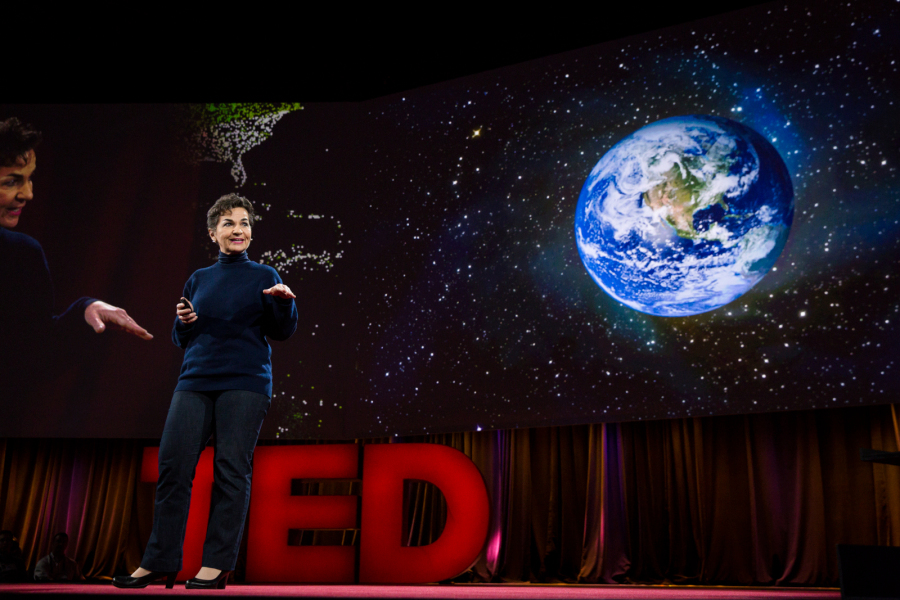The Jeff Skoll Group had the honor of hosting a breakfast event at the recent TED2016 conference in Vancouver, featuring two leaders in the fight against climate change—Christiana Figueres, the head of the UN Framework Convention on Climate Change, and former US Vice President Al Gore, now chairman of the Climate Reality Project.
Both climate leaders gave main-stage talks at TED. The breakfast, attended by some 90 TED participants was a chance for a more informal exchange.
Christiana Figueres kicked things off with a combination of optimism and urgency. Last year’s Paris climate deal is hugely important, she stressed; it’s the first time that the world has signed on to a common climate goal. We’re finally all rowing in the same direction.
However this is a first, not a final, step. The targets aren’t ambitious enough to get us where we need to be. But the agreement includes provisions to review and ratchet up those targets. The next five years are key, with intermediate steps to strengthen the Paris commitments expected as soon at 2018.

Al Gore followed with a similar mix of urgency and optimism. His arguments are as compelling as ever, supported by a range of data showing the increasingly negative impacts of climate change. But we now have solutions that we didn’t have before. Renewable energy use is growing significantly, in the US, China, and around the world. Continued improvements in technology and falling prices for wind, solar, and battery storage are strong positive signs.
Conversely, fossil fuel exploitation is creating a new pain point beyond carbon pollution: the financial markets. Investors increasingly recognize the risks of significant stranded oil and coal assets, because we can’t burn known reserves and still have a livable planet. Echoing Christiana Figueres, Al Gore reiterated the need to push forward aggressively: we recognize the problem, we have the answers, but whether we have the will to act is still an open question.
The diversity in the room illustrated the value of—and need for—multiple levels of engagement to advance climate action. One participant urged TED, with its unique blend of participants, to consider a dedicated TED Climate track over this next critical five-year period.
The Jeff Skoll Group presence at the breakfast reflected our commitment to this type of multilevel engagement. In attendance were representatives from the Skoll Foundation; Capricorn Investment Group, one of the world’s largest clean tech investors; Participant Media, producer of An Inconvenient Truth; and my group, the Skoll Global Threats Fund, which focuses on building public and political will for climate action.
We too work at multiple levels, all rowing in the same direction. We couldn’t agree more with both the urgency and the optimism expressed by Al Gore and Christiana Figueres. We’re also excited that Al Gore will speak at the upcoming Skoll World Forum. His talk will be live streamed, and we hope you can watch.